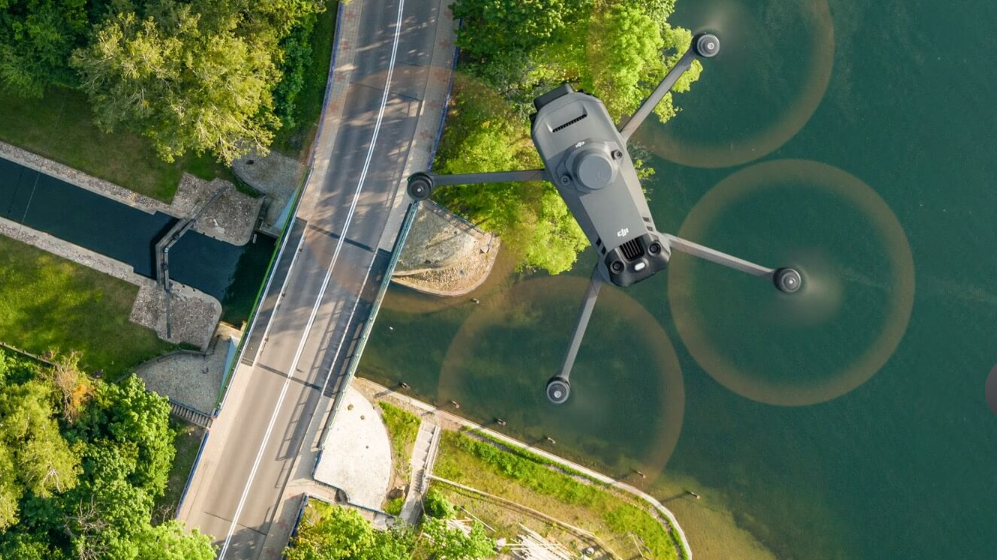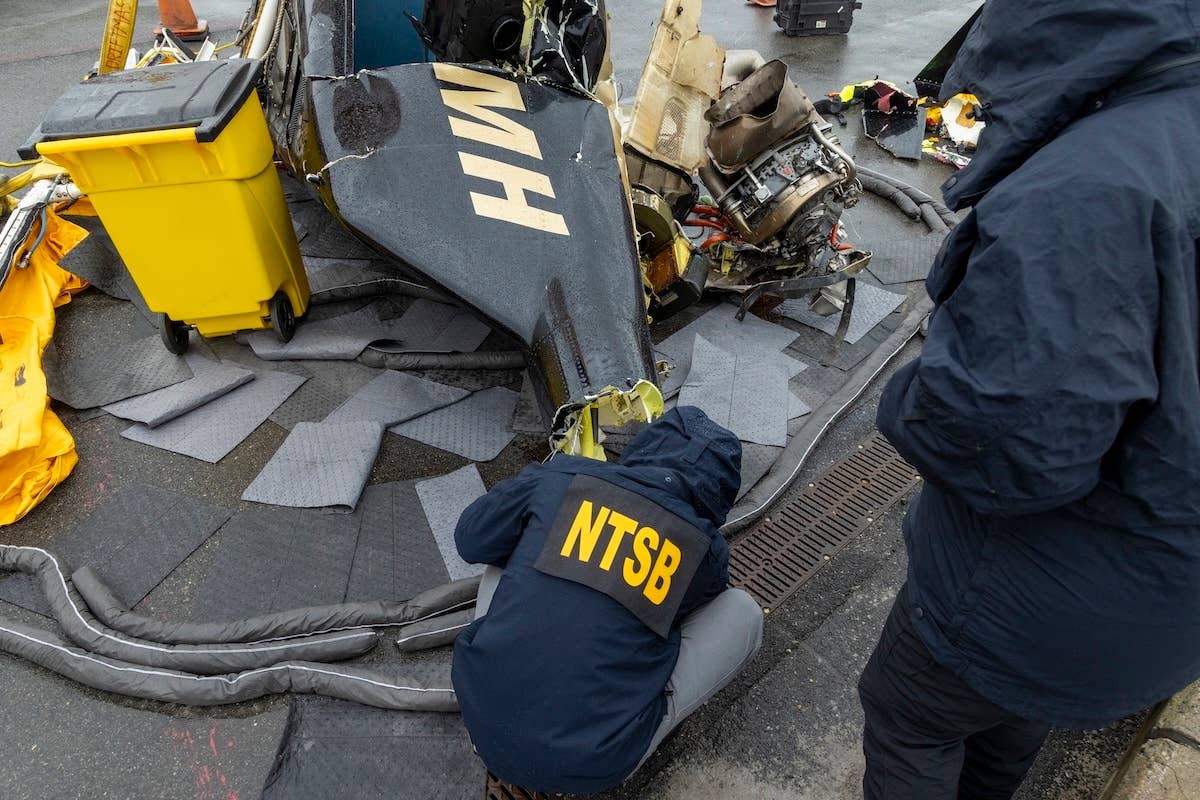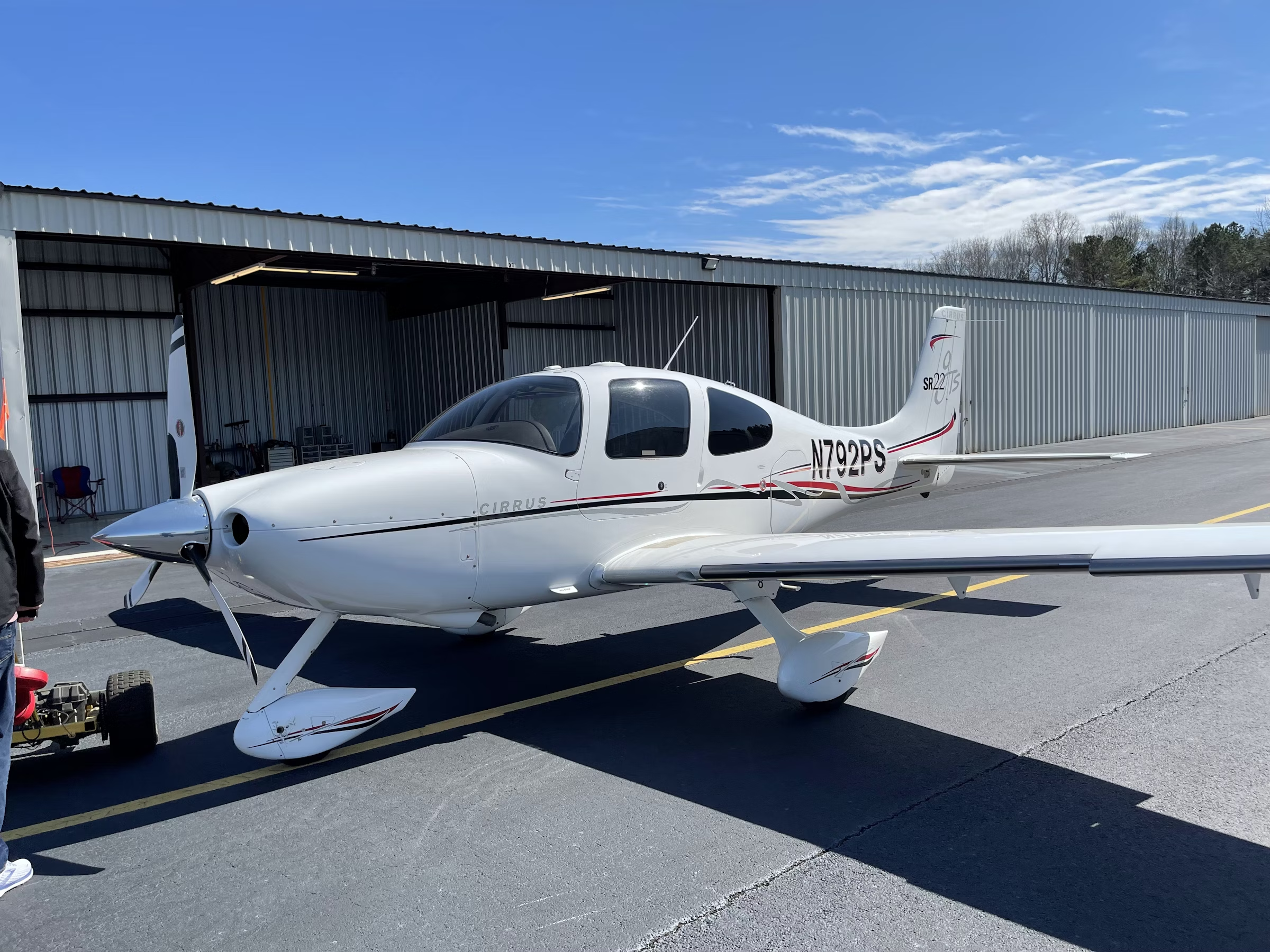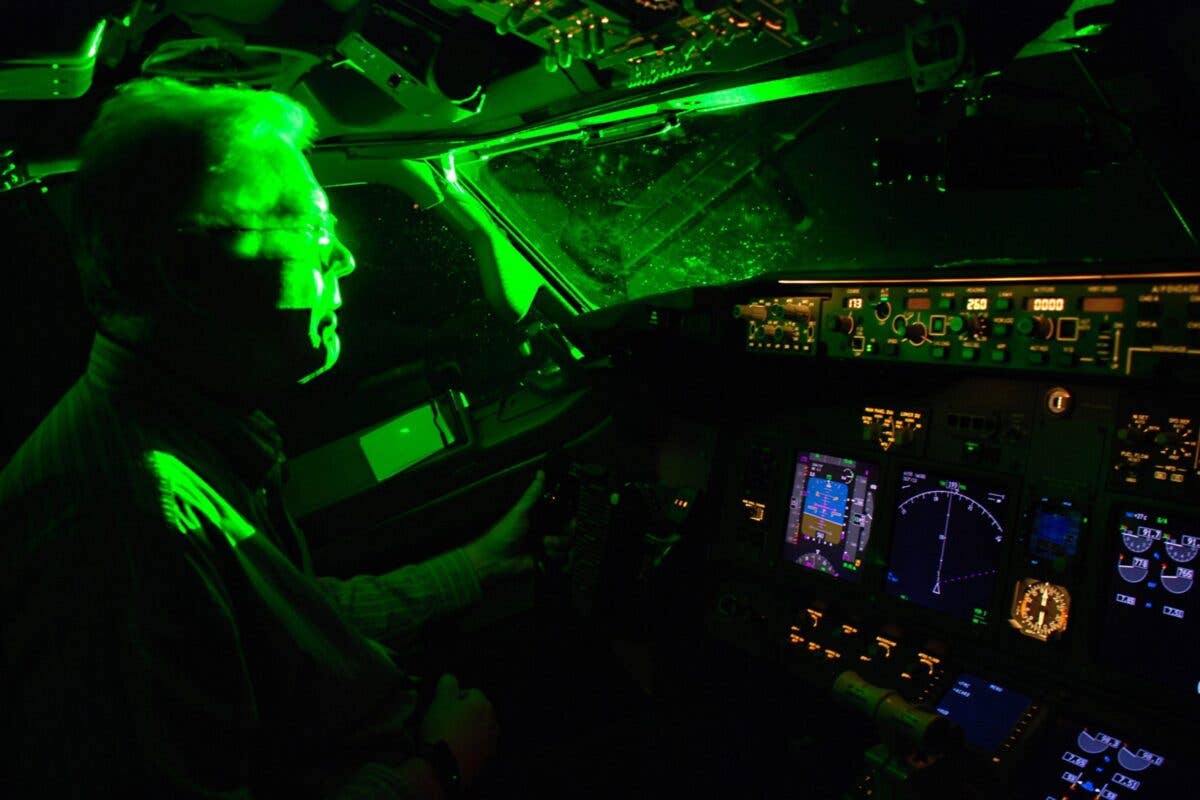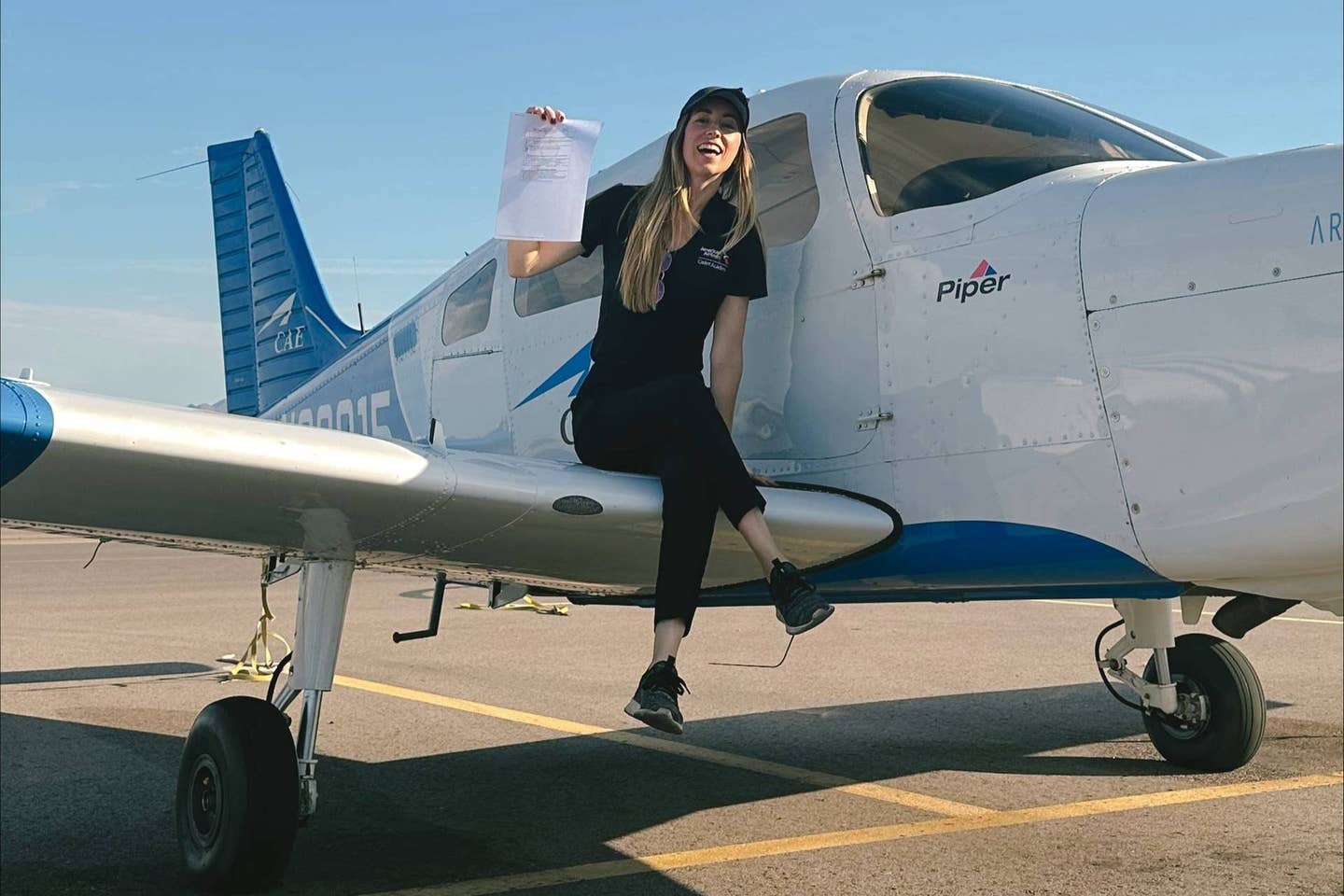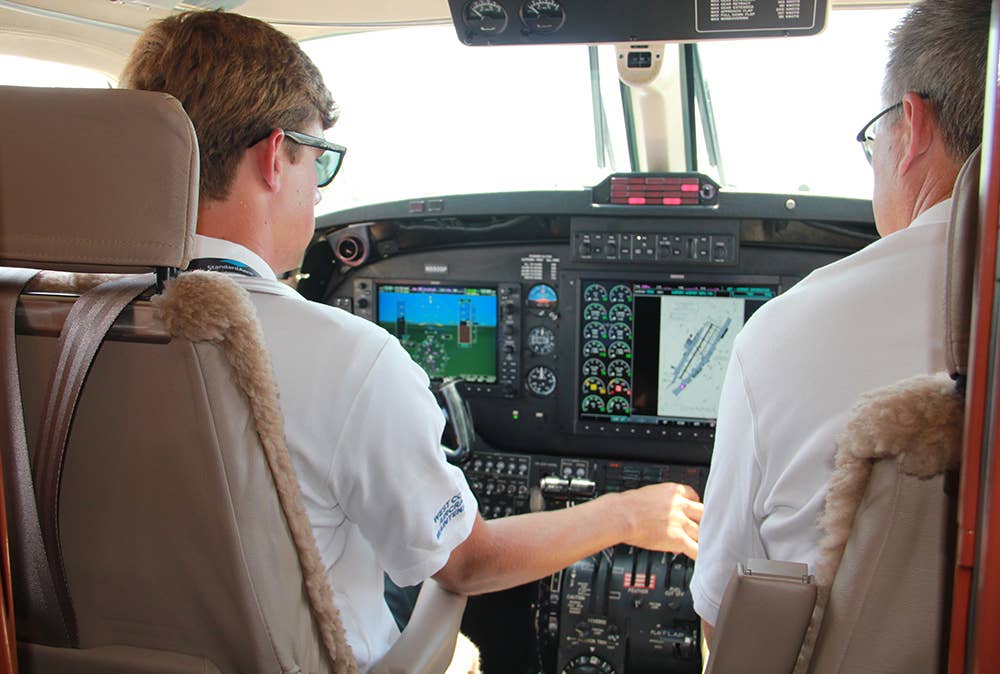Electra.aero Nabs $1.9M Army Contract for Electric Aircraft Testing
The manufacturer’s flagship, hybrid-electric short takeoff and landing (eSTOL) aircraft requires only the space of a soccer field to launch and touch down.
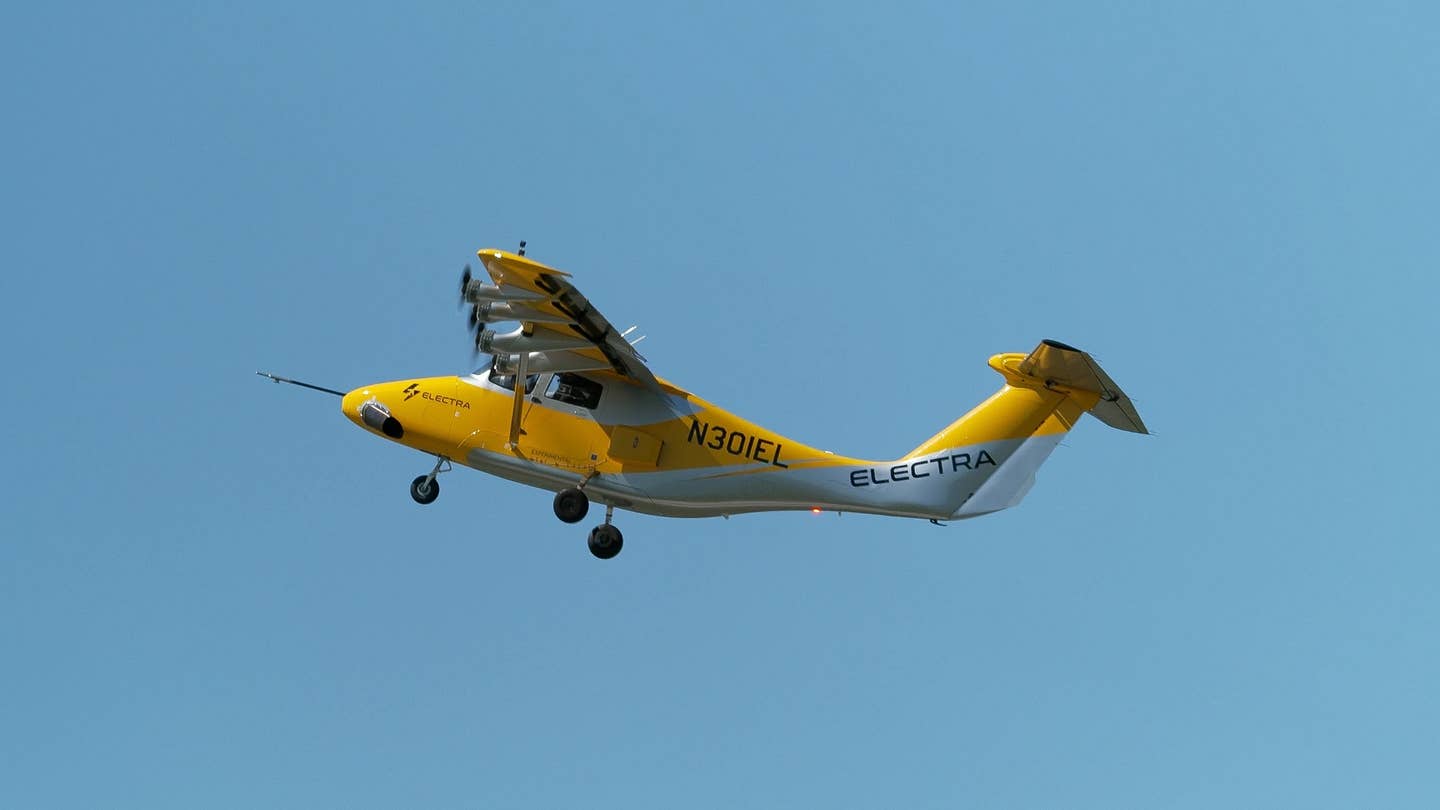
A technology demonstrator of Electra’s nine-passenger, hybrid-electric short takeoff and landing (eSTOL) aircraft takes flight. [Courtesy: Electra.aero]
The U.S. Army will soon begin experimenting with an electric aircraft that needs only a soccer field-sized space to take off and land.
The Army on Thursday awarded a $1.9 million Small Business Innovation Research (SBIR) contract to Electra.aero, the manufacturer of a nine-passenger, hybrid-electric short takeoff and landing (eSTOL) design, to perform powered wind tunnel testing.
Similar to Electra’s other SBIR and Small Business Technology Transfer (SBTT) Phase II and III engagements with AFWERX, the innovation arm of the U.S. Air Force, the Army contract is a quid-pro-quo arrangement.
Electra will get the opportunity to leverage military test facilities as it collects data that will inform aircraft design and development. The Army, meanwhile, can explore the eSTOL’s unique capabilities—such as its miniscule runway requirement—for logistics operations in “contested” environments.
“There is a substantial benefit to employing the right-sized aircraft for a given payload-range mission,” said Ben Marchionna, director of technology and innovation at Electra. “Many of the most commonly deployed military logistics solutions in use today are flown well below their intended payload capacity. Our eSTOL aircraft can fulfill these missions while using dramatically less fuel, providing much more range, operating at significantly reduced noise levels, and utilizing the same constrained operational ground footprints.”
According to Electra, the eSTOL cruises at 175 knots and is capable of carrying up to nine passengers or 2,500 pounds of cargo. The company claims it will have more than twice the payload, 10 times the range, and 70 percent lower operating costs compared to electric vertical takeoff and landing (eVTOL) alternatives, while offering lower noise and fuel consumption.
The aircraft has a range of 500 nm for commercial use cases. But with range extensions, the Army will be able to fly it for 1,000 nm.
The defining feature of Electra’s design is its use of blown-lift technology, which redirects slipstream flows over the aircraft’s wings into large flaps and ailerons. By “multiplying lift,” as Electra puts it, the eSTOL can take off at just 35 mph, reducing the runway requirement to 150 feet.
Electra says it is the first manufacturer to deploy blown lift in an aircraft with a distributed electric propulsion system. That system takes the form of eight electric motors powered by a turbogenerator. The latter can run on both electricity or traditional aviation fuel and recharges the aircraft’s batteries in flight. Because of this, airports will not need to install electric aircraft chargers to accommodate it, Electra says.
The manufacturer intends to certify its flagship model as a fixed wing aircraft under FAR Part 23 and EASA CS-23, allowing it to be operated with a standard fixed wing pilot’s certificate. That removes a key hurdle facing the eVTOL industry, which will need to train a new generation of powered-lift-certified pilots under FAA proposals.
The Army will be one of the earliest users of the eSTOL, but Electra has plenty of commercial arrangements lined up. Those include more than 2,000 preorder sales of its flagship aircraft to major customers, among them American operators Bristow Group and JSX and India’s JetSetGo
This week, the manufacturer announced a partnership with Wilbur Air, the newly formed operator subsidiary of Australian vertiport developer Skyportz. Electra and Skyportz in 2021 signed a letter of intent for 100 aircraft.
Electra expects to begin eSTOL deliveries in 2028 following certification.
Like this story? We think you'll also like the Future of FLYING newsletter sent every Thursday afternoon. Sign up now.

Sign-up for newsletters & special offers!
Get the latest FLYING stories & special offers delivered directly to your inbox

